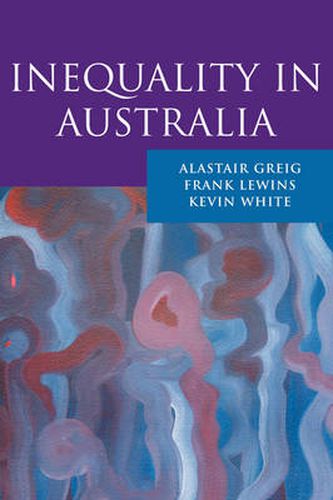Readings Newsletter
Become a Readings Member to make your shopping experience even easier.
Sign in or sign up for free!
You’re not far away from qualifying for FREE standard shipping within Australia
You’ve qualified for FREE standard shipping within Australia
The cart is loading…






This text seeks to analyse and explain inequality, challenging traditional conceptions and providing a new critical perspective. The authors provide a comprehensive historical account of inequality, and show how that account no longer adequately explains the new and different forms experienced in recent decades. They argue that transformations in industrial, familial and political relations since the 1970s must be taken into account when trying to come to grips with the ‘new’ inequalities. As society has changed, new forms of inequality have emerged, conditioning the subject’s very experience of identity, embodiment and politics. Inequality is understood, then, not as something that can be determined only with reference to traditional categories such as class but as that which works more insidiously. The authors demonstrate, for example, how bio and medical technologies produce inequalities. The book is at once a critical overview of contemporary inequality and a thorough-going textbook suitable for undergraduates.
$9.00 standard shipping within Australia
FREE standard shipping within Australia for orders over $100.00
Express & International shipping calculated at checkout
This text seeks to analyse and explain inequality, challenging traditional conceptions and providing a new critical perspective. The authors provide a comprehensive historical account of inequality, and show how that account no longer adequately explains the new and different forms experienced in recent decades. They argue that transformations in industrial, familial and political relations since the 1970s must be taken into account when trying to come to grips with the ‘new’ inequalities. As society has changed, new forms of inequality have emerged, conditioning the subject’s very experience of identity, embodiment and politics. Inequality is understood, then, not as something that can be determined only with reference to traditional categories such as class but as that which works more insidiously. The authors demonstrate, for example, how bio and medical technologies produce inequalities. The book is at once a critical overview of contemporary inequality and a thorough-going textbook suitable for undergraduates.